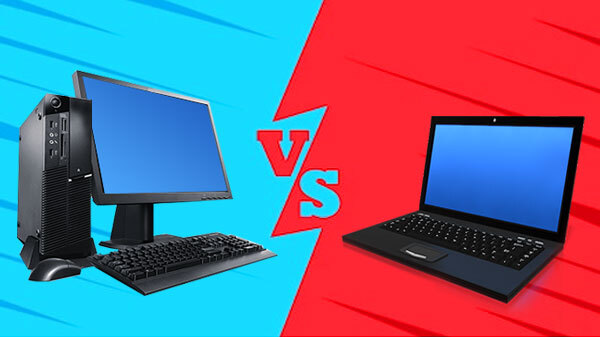Desktop or Laptop – Which Is Best for Your Needs? (Updated 2024)
Desktop or Laptop – Which Is Best for Your Needs? (Updated 2024)
Blog Article
Desktop or Laptop?
In today’s fast-paced world, computers have become an essential tool for work, education, entertainment, and staying connected. When it comes to choosing a computer, two popular options are desktops and laptops. Both have their own set of advantages and considerations. In this Protocal Electronics well researched blog post, we will explore the benefits and drawbacks of each, helping you make an informed decision based on your specific needs.

1. Portability vs. Power (Desktop or Laptop)
We noticed one of the primary factors to consider when choosing between a desktop or laptop is portability. Laptops offer the advantage of mobility, allowing you to work or access your files from anywhere. Whether you’re a student, a professional constantly on the move, or someone who values flexibility, a laptop provides the convenience of being able to take your work with you.
On the other hand, if raw power and performance are your top priorities, a desktop computer is the way to go. Desktops generally have more powerful processors, larger storage capacities, and superior graphics capabilities compared to laptops. This makes them ideal for demanding tasks like video editing, gaming, or running resource-intensive software. Additionally, desktops are easier to upgrade and customize, allowing you to adapt to evolving technology and extend the lifespan of your machine.
2. Ergonomics and Display
The ergonomics of your computer setup are important considerations, especially if you spend long hours working or gaming. Laptops, with their integrated keyboards and trackpads, are designed for convenience and compactness. However, the smaller form factor can sometimes lead to discomfort, as the keyboard and screen are close together, potentially causing strain on your wrists and neck.
But Desktops, on the other hand, offer more flexibility in terms of ergonomics. You can choose a comfortable keyboard, mouse, and monitor setup that suits your preferences and promotes better posture. A larger monitor provides a more immersive experience, especially for tasks that require multitasking or detailed visual work. Additionally, desktops can be connected to external monitors, giving you the option for a dual-display setup.
3. Battery Life and Power Management
In desktop or laptop Battery life is a crucial consideration, especially for users who require their computers to be portable. Laptops are designed to be energy efficient and have built-in battery systems that allow them to run without a direct power source. Depending on the model and usage, a laptop can typically provide several hours of battery life, making it suitable for on-the-go productivity.
Desktops, being tethered to a power source, do not have the same concerns about battery life. They can be left running for extended periods without the need for recharging. This makes desktops more suitable for tasks that demand consistent power supply, such as running servers or performing resource-intensive calculations.
4. Price and Upgradeability
In Desktop or Laptop Budget considerations play a significant role in the decision-making process. Generally, laptops tend to be more expensive than desktops with similar specifications. The compact design, portability features, and integration of components contribute to the higher price tag of laptops. On the other hand, desktops offer more affordable options for the same level of performance.
Another advantage of desktops is their upgradeability. Most desktop components are easily replaceable, allowing you to upgrade individual parts as needed, such as the processor, graphics card, or storage. This flexibility is not as readily available in laptops, as they are often designed with integrated components that cannot be easily swapped out.
Conclusion (Desktop or Laptop)
Budget considerations play a significant role in the decision-making process. Generally, laptops tend to be more expensive than desktops with similar specifications. The compact design, portability features, and integration of components contribute to the higher price tag of laptops. On the other hand, desktops offer more affordable options for the same level of performance.
Another advantage of desktops is their upgradeability. Most desktop components are easily replaceable, allowing you to upgrade individual parts as needed, such as the processor, graphics card, or storage.
From our point of view, Laptop is always better then Desktop.